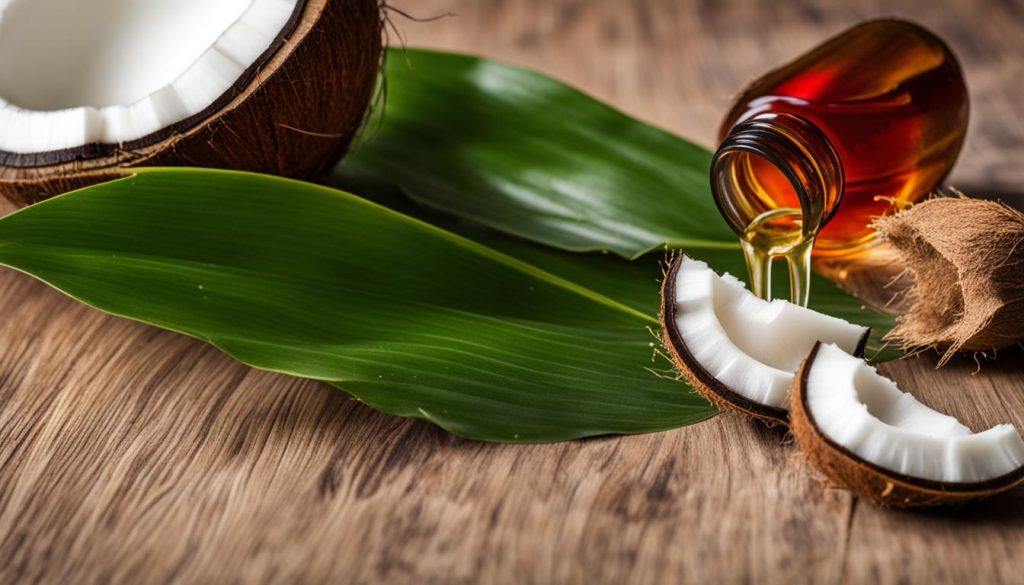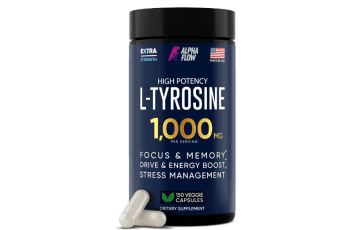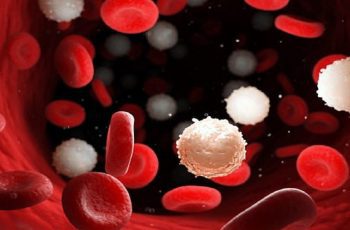When it comes to protecting our pets from fleas and ticks, many pet parents like myself are turning to natural remedies. While flea and tick medications are effective, some of us prefer to avoid harsh chemicals and opt for alternative methods. However, it’s important to know which home remedies actually work to ensure our furry friends stay safe and healthy.
In this article, I will discuss 10 common home remedies for fleas and ticks that are not effective and can be harmful to pets, according to experts and veterinarians. By understanding what doesn’t work, we can make more informed decisions about how to best protect our pets.
Natural Remedies for Fleas and Ticks
- Not all natural remedies for fleas and ticks are effective or safe for pets.
- Using dish detergent, garlic, apple cider vinegar, rubbing alcohol, cedar oil, salt, boric acid, baking soda, coconut oil, and diatomaceous earth may not provide the desired results.
- Consulting with a veterinarian and using vet-approved flea and tick prevention methods is crucial for the health and safety of our pets.
- Explore alternative options such as topical solutions or chewable tablets for flea and tick control.
- Prioritize the well-being of your pets by choosing the best and safest flea and tick protection methods available.
1. Dish Detergent as a Flea Treatment
Using dish detergent as a flea treatment is not effective. Dog and cat skin has a different pH level than human skin, and using dish detergent can be dry and irritating. It also doesn’t control the entire flea life cycle, as it only kills adult fleas but not the eggs and larvae. Dish detergent may be safe for bathing puppies and kittens, but alternative methods are needed to control fleas in the environment.
If you’re considering using dish detergent as a flea treatment for your pet, it’s important to understand why it may not be the best option. While it may seem like a convenient and affordable solution, there are more effective and safer alternatives available.
One of the main reasons dish detergent is not recommended for flea treatment is due to the difference in pH levels between human skin and pet skin. Dish detergents are designed to remove grease and oil from dishes, and they can be harsh on the skin. Dog and cat skin are more sensitive and have a higher pH level, which can be disrupted by the use of dish detergent. This can lead to dryness, irritation, and discomfort for your pet.
Additionally, dish detergent only targets adult fleas and does not address the entire flea life cycle. Fleas go through four stages: egg, larva, pupa, and adult. Adult fleas make up only a small portion of the flea population, with eggs, larvae, and pupae residing in your pet’s environment. Dish detergent doesn’t have the ability to effectively eliminate eggs and larvae, which means that the flea population can quickly multiply and reinfest your pet.
While dish detergent may be safe for bathing puppies and kittens, it’s important to note that this method is not suitable for long-term flea control. Puppies and kittens have more delicate skin and may be more prone to dryness and irritation. It’s best to consult with your veterinarian for appropriate flea control methods that are safe for young animals.
Instead of using dish detergent, there are alternative methods for controlling fleas in your pet’s environment. Vacuuming regularly, washing bedding and toys in hot water, and using flea prevention products recommended by your veterinarian can help manage and prevent flea infestations.
2. Garlic as a Flea Repellent
Garlic is often suggested as a natural flea repellent, but it is not effective. Many pet owners believe that feeding their dogs or cats garlic can repel fleas and ticks. However, this is a misconception that can actually be harmful to pets.
While garlic has many health benefits for humans, it does not have the same effect on fleas and ticks. In fact, garlic does not repel these pests at all. This means that including garlic in your pet’s diet or applying garlic-infused products will not prevent fleas and ticks from infesting your furry friend.
Moreover, garlic can be toxic to pets if ingested in large quantities. It contains compounds that can damage their red blood cells, leading to a condition known as Heinz body anemia. The toxic effects of garlic can be heightened in certain breeds, such as dogs in the Allium family, which includes breeds like Akitas, Shiba Inus, and Chows.
Veterinarians strongly advise against using garlic as a flea treatment or repellent. It is safer to rely on proven flea control methods recommended by experts and veterinarians. These methods include using veterinarian-approved flea prevention products, such as spot-on treatments or oral medications.
Remember, when it comes to the health and well-being of your pets, it’s crucial to choose safe and effective flea prevention options and avoid potentially harmful remedies.
- Garlic is not an effective flea repellent
- Feeding pets garlic can be toxic
- Garlic does not repel fleas and ticks
- Choose veterinarian-approved flea control methods
3. Apple Cider Vinegar as a Flea Treatment
Using apple cider vinegar to kill fleas is not recommended. While it may repel fleas when sprayed on your pet’s bedding or directly on your pet, it is not an effective solution. In fact, it can be unsafe and potentially harmful to your pet’s health. Vinegar can also be harmful if ingested by pets, causing digestive issues.
Apple cider vinegar has been suggested as a natural method for flea control, but there is limited scientific evidence to support its efficacy. It is essential to prioritize the health and safety of your pet when dealing with flea infestations.
Instead of relying solely on apple cider vinegar, it is recommended to consult with a veterinarian for proper flea prevention and treatment options. Vet-approved flea control products, such as topical solutions or chewable tablets, are considered safer and more effective in preventing fleas and protecting your pet’s well-being.
4. Rubbing Alcohol for Flea and Tick Removal
When it comes to eliminating fleas and ticks, rubbing alcohol is often recommended as an effective solution. However, it’s crucial to understand how to use it correctly to ensure the safety of your pet. Instead of pouring alcohol directly on your pet, experts recommend a different approach.
To effectively kill fleas and ticks, it is best to drop them into a container filled with rubbing alcohol. This method ensures that the pests are completely eliminated. Pouring alcohol directly on a tick attached to your pet can cause the tick to release its toxins, potentially harming your pet.
If you discover a tick on your pet, it is important to use tweezers to carefully remove it. Avoid using alcohol directly on your pet’s skin, as it can cause irritation. Instead, focus on using rubbing alcohol as a secure and efficient method to eliminate fleas and ticks.
5. Cedar Oil as a Flea and Tick Repellent
While cedar oil is often touted as a natural repellent for fleas and ticks, it is important to understand its limitations and potential risks.
Despite its reputation for repelling some bugs, cedar oil can actually be irritating to the skin and may cause skin problems in dogs. Additionally, ingesting cedar oil or breathing it in can be harmful to pets. It is crucial to prioritize the health and safety of your furry friends when considering alternative flea and tick prevention methods.
It’s worth noting that other oil extracts like tea tree oil and eucalyptus oil are also not recommended as they can be toxic in the doses needed to effectively repel fleas and ticks.
The Importance of Safe Alternatives
When it comes to protecting your pets from fleas and ticks, it’s essential to choose safe and effective alternatives. While natural remedies may seem appealing, it’s always best to consult with a veterinarian before trying any new methods.
Vet-approved flea and tick prevention methods, such as topical solutions or chewable tablets, provide the best protection for your pets. These products have been extensively tested and proven to be safe and reliable in controlling fleas and ticks.
Remember, the well-being of our four-legged companions should always be our top priority.
6. Salt as a Flea Killer
Many pet owners have heard that salt can be used to kill fleas, but is it really effective? Let’s take a closer look at using salt as a flea killer.
Using salt to kill fleas may seem like a natural and affordable option, but it is actually dangerous and ineffective. While salt can dehydrate fleas and larvae, the amount of salt required to eliminate all flea eggs and larvae is toxic to pets if ingested. This means that using salt as a flea killer can potentially harm your pet.
Furthermore, even if you were to use a large amount of salt, it may not effectively eliminate all stages of the flea life cycle. Salt primarily targets adult fleas and larvae, but it does not kill flea eggs. Since fleas can lay hundreds of eggs in their lifetime, eliminating only the adults and larvae may not be enough to completely get rid of a flea infestation.
Using salt as a flea killer can also be impractical. You would need to thoroughly treat your entire home with salt, including carpets, furniture, and other areas where fleas may be hiding. This can be time-consuming and may not yield the desired results.

While salt may have some dehydrating effects on fleas, using salt as a flea killer is ineffective, dangerous, and impractical. It is important to prioritize the health and safety of your pets when it comes to flea control. Instead, consider using vet-approved flea and tick prevention methods that are safe and effective.
7. Boric Acid (Borax) as a Flea Remedy
When it comes to flea control, many pet owners consider using boric acid or borax as a natural remedy. However, it’s important to understand the limitations and risks associated with these products.
Boric acid can be effective in eliminating flea larvae in carpets and upholstery. Its desiccating properties cause dehydration, leading to the larvae’s demise. However, it’s crucial to note that boric acid is not effective against adult fleas or ticks. Adult fleas and ticks solely survive on blood and do not consume or come into contact with boric acid.
It’s crucial to emphasize that boric acid should not be used directly on pets or applied around them. The ingestion or inhalation of boric acid can be harmful to pets, leading to various health issues.
Instead of relying solely on boric acid or borax for flea control, it is advisable to use a comprehensive approach. Consult with a veterinarian to explore vet-approved flea and tick prevention methods, such as topical solutions or chewable tablets, that are safer and more effective at protecting your pets from fleas and ticks.
To give you a visual representation, here’s an image related to boric acid and fleas:
Remember, keeping your pets safe and healthy should always be your top priority.
8. Baking Soda as a Flea Killer
When it comes to finding effective home remedies for fleas, baking soda is often suggested as a possible solution. However, it’s important to note that baking soda does not kill adult fleas and has no proven effectiveness in repelling or treating fleas.
Baking soda, also known as sodium bicarbonate, is commonly used as a household cleaning agent and odor absorber. It can help absorb odors from carpets, but there is no evidence to support its use as a flea remedy.
While baking soda may have some benefits when it comes to eliminating odors, it is not an effective flea treatment. It’s essential to use vet-approved methods for flea control, such as topical solutions or chewable tablets, to ensure the health and safety of your pets.
Remember, only rely on proven flea control methods recommended by professionals to effectively eliminate fleas and protect your pets from infestations.
9. Coconut Oil as a Flea Repellent
Coconut oil is a popular natural remedy with numerous health benefits for pets. However, when it comes to repelling fleas and ticks, coconut oil falls short. While it may have moisturizing properties and soothe small areas of irritation or dryness, it does not provide effective protection against fleas and ticks.
If you’re looking for a natural solution to combat fleas and ticks, it’s best to consult with a veterinarian for vet-approved options. They can recommend safe and effective flea and tick prevention methods that are specifically formulated to protect your pet.
Remember, the health and safety of your furry friend should always be a top priority

10. Diatomaceous Earth as a Flea Treatment
Diatomaceous earth is a popular natural remedy for flea control, known for its ability to kill adult fleas in the environment. However, it is important to note that diatomaceous earth should not be applied directly to pets. While it can be effective in eliminating fleas from your home, it is not a reliable method for treating fleas on pets.
Diatomaceous earth is a fine powder made from the fossilized remains of diatoms, a type of algae. Its microscopic sharp edges can penetrate the exoskeletons of insects, causing them to dehydrate and die. However, when applied to the fur or skin of pets, diatomaceous earth can be irritating and drying.
Furthermore, diatomaceous earth is not effective in controlling the complete flea life cycle. It only kills adult fleas upon contact and has no effect on flea eggs and larvae. For comprehensive flea control, it is crucial to address all stages of the life cycle.
Although diatomaceous earth is non-toxic to humans and animals when used as directed, it can be harmful if inhaled or ingested in large quantities. Therefore, it is essential to use vet-approved flea and tick treatment methods that are specifically formulated for pets.
While diatomaceous earth can be a useful tool in eliminating fleas from your home, it should not be used directly on pets. Always consult with your veterinarian for the most effective and safe flea treatment options for your furry friends.
Conclusion
When it comes to protecting our beloved pets from fleas and ticks, many pet parents seek out natural remedies as an alternative to harsh chemicals. However, it is crucial to approach these DIY solutions with caution and consult a veterinarian before trying them. While there are numerous natural flea and tick remedies suggested, it is important to note that many of these remedies are ineffective and can potentially harm our pets.
Veterinarian-approved flea and tick prevention methods, such as topical solutions or chewable tablets, are the safest and most reliable options for protecting our pets. These non-toxic solutions are specifically formulated to combat fleas and ticks while ensuring the health and safety of our furry friends. Consulting with a veterinarian will ensure that the chosen method is appropriate for our pets’ specific needs.
While natural remedies may appear appealing, it is essential to prioritize the well-being of our pets. When it comes to flea and tick control, opting for reliable and vet-approved solutions is the best course of action. So let’s give our pets the protection they deserve by choosing non-toxic flea and tick solutions that have been proven effective, guaranteeing their comfort and peace of mind.
FAQ
Can dish detergent be used as a flea treatment?
Using dish detergent as a flea treatment is not effective. It does not control the entire flea life cycle and can be dry and irritating to a pet’s skin.
Is garlic an effective flea repellent?
No, garlic does not repel fleas and ticks on dogs or cats, and it can be toxic if ingested. It is not recommended as a flea treatment for pets.
Can apple cider vinegar be used as a flea treatment?
Apple cider vinegar is not recommended as a flea treatment. While it may repel fleas, it is unsafe and can be harmful if ingested by pets.
Is rubbing alcohol effective for removing fleas and ticks?
Rubbing alcohol can kill fleas and ticks when used correctly. However, it is recommended to drop fleas or ticks into a container filled with rubbing alcohol rather than applying it directly to a pet.
Can cedar oil be used as a flea and tick repellent?
Cedar oil may repel some bugs, but it can be irritating to a pet’s skin and cause skin problems. It is not recommended for use as a flea and tick repellent.
Does salt kill fleas?
Using salt to kill fleas is not recommended as it requires a toxic amount of salt if ingested by pets. It is not effective for eliminating all flea eggs and larvae and can be harmful.
Is boric acid (borax) effective as a flea remedy?
Boric acid can be effective against flea larvae in carpets, but it is not effective against adult fleas or ticks. It is not recommended for use directly on pets or in the home.
Does baking soda kill fleas?
Baking soda does not kill adult fleas and has no proven effectiveness in treating fleas. It is not recommended as a flea remedy.
Can coconut oil repel fleas and ticks?
Coconut oil does not repel fleas and ticks. While it may have other health benefits, it is not effective for flea and tick prevention.
Is diatomaceous earth a safe flea treatment?
Diatomaceous earth can be used to kill adult fleas in the environment, but it should not be applied directly to pets. It is not effective for flea control on pets and can be harmful if inhaled or ingested.




